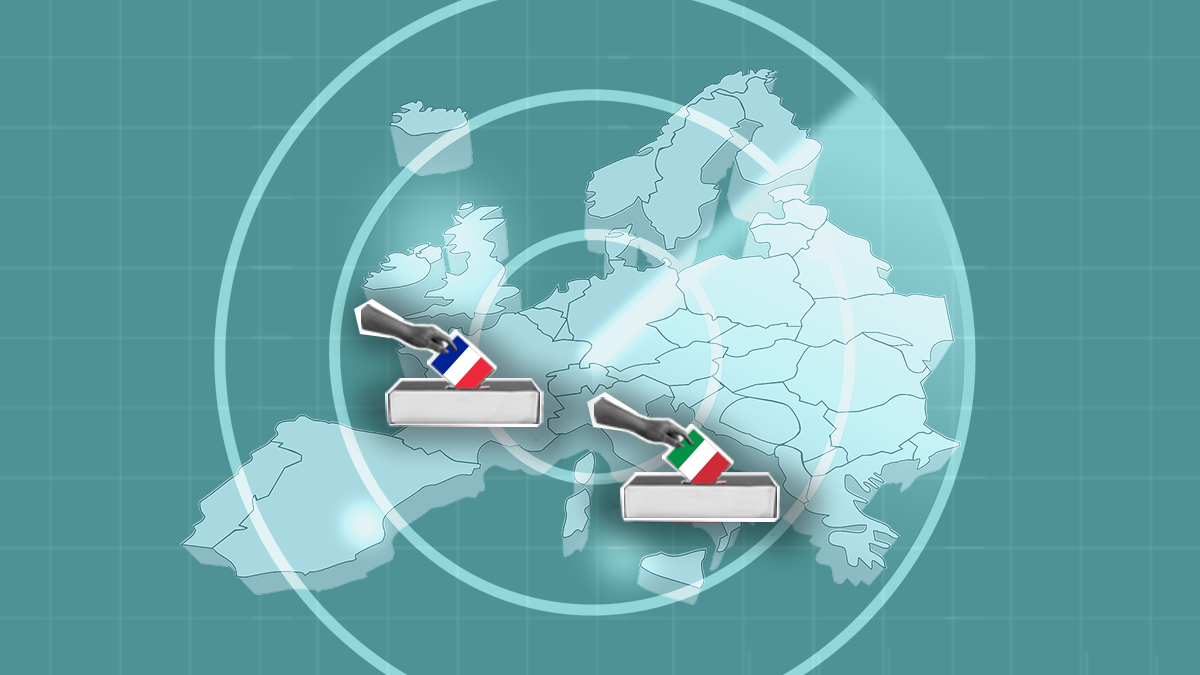Over the past year, the biggest story in European politics has been its remarkable unity in response to crises. The EU plan for COVID recovery and the response to Russia’s invasion of Ukraine have been much more cooperative and effective than the sometimes-ugly debates over managing the sovereign debt crisis of 2009-2010 or the migrant crisis of 2015-2016.
But political pressure is building on the continent. Inflationary pressures, exacerbated by continuing supply-chain disruptions, higher food and fuel costs provoked by the war, and ambitious plans to redraw Europe’s energy map and spend more on defense are stoking public fear that it’s all too much at once. How these concerns play out domestically in a few key countries could impact European unity and progress moving forward.
This weekend, voters go to the polls in France and Italy, and the messages they send will only become more urgent in the coming months.
Can Macron win a majority in France’s National Assembly?
On Sunday, French voters will cast ballots in the first round of parliamentary elections, and the big question is whether President Emmanuel Macron’s Ensemble! Party can win the majority it needs to advance an ambitious reform agenda. “The Macron camp has woken up to the fact that parliamentary election polls have tightened in recent days,” warns Eurasia Group Europe expert Mujtaba Rahman. Lose their majority, and Macron’s party, and a government led by Prime Minister Élisabeth Borne, will face the tough task of forming ad-hoc parliamentary alliances to win votes on individual proposals.
In recent days, a resurgent left-wing coalition led by firebrand candidate Jean-Luc Mélenchon has climbed the polls, a reflection of voter anxiety not over Russia’s invasion or France’s place in the world but over pocketbook issues that have become more urgent. “The most pressing concern of voters is the cost of living, and some Macron supporters fear that high pump prices for petrol and diesel may be a ‘seat killer’ for Macron’s party,” says Rahman.
How popular is Italy’s far-right?
On Sunday, about 9 million Italians from some 1,000 cities and towns across the country will vote in local elections. That’s only about 15% of Italy’s population, but these votes will be an important testing ground for parties looking ahead to a historic and hotly contested national election next spring.
To this point, Prime Minister Mario Draghi’s national unity government has mainly kept its coalition together. That’s particularly true for Italy’s active support for Ukraine and condemnation of Russia, now a source of rising tensions nationwide. Brothers of Italy, the ascendant party of the far-right that has remained outside Draghi’s unity government, is steadily gaining support and now leads national polls. A victory early next year for the EU-hostile Brothers would send shock waves across European politics.
Sunday’s vote won’t knock Draghi’s governing coalition off track, and it won’t force early elections. But results will be closely watched to see how Brothers of Italy fares relative to other popular anti-establishment parties, such as the far-right Lega Party and the center-left Five-Star Movement. A good day for the Brothers will set expectations for the crucial national vote next year.
Bottom line: Both the French and Italian elections will offer important first clues about the kind of pressures European incumbents are about to face.
